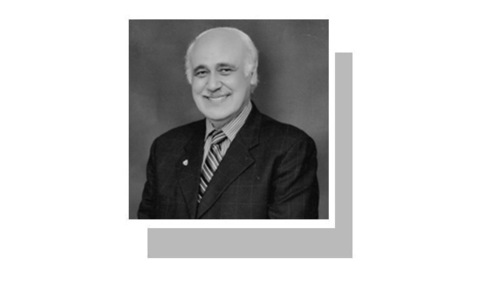
LONDON: Eliminating malaria, the mosquito-borne scourge that kills more than 860,000 people a year, would be a dream come true for millions - but medical experts say right now that goal remains completely unrealistic.
That view from leading researchers contrasts sharply with grand announcements by the Bill & Melinda Gates Foundation and the World Health Organization, which have declared their wish to rid the world of the disease.
“Far from being brave, the rhetoric around eliminating malaria is often naive,” said Richard Horton, editor of the British medical journal Lancet.
“For sub-Saharan Africa, it’s a hopelessly impossible target for now,” he said, pointing to the continent’s weak health systems and chronic medicines shortage, among other problems.
The idea of eliminating malaria was examined in a series Friday in the Lancet. Experts analyzed issues like the practicalities of wiping out malaria and its financial costs.
Getting rid of malaria will be far pricier than controlling it, and economists warned that higher costs would not necessarily be offset by future savings.
Although research suggests wiping out the parasitic disease may be feasible in Latin America and Asia, it will be nearly impossible in Africa, where most of the world’s estimated 247 million yearly cases occur. Malaria is treatable if caught early but is especially deadly in children under five, who make up most of its victims.
One of the main stumbling blocks toward elimination is the lack of a malaria vaccine. The most promising candidate is still being tested, but at best it is only about 50 per cent effective.
In comparison, the four vaccines being used to eradicate polio – an initiative under way for more than two decades – work about 95 per cent of the time.
Other experts said that since more than 70 countries including Britain, Italy, the US and Singapore have already eliminated malaria, much can be accomplished with existing tools like bed nets and drugs. Economic development and higher living standards would also help.
“We should not fall into the ‘Waiting for Godot’ syndrome which undermines strong progress while everyone waits for an ideal vaccine to arrive,” said Sir Richard Feachem, who formerly headed the Global Fund to Fight AIDS, Tuberculosis and Malaria, and one of the Lancet series authors.
But because malaria is transmitted by mosquitoes, eliminating the disease will be particularly tricky. Unlike viruses spread only by humans, like polio, getting rid of malaria permanently means erasing it from billions of mosquitoes.
Richard Tren, director of the nonprofit Africa Fighting Malaria, said health officials had been too swayed by environmental lobbyists and were overlooking the need for new pesticides. “You cannot possibly stop an insect-borne disease without more insecticides,” he said.
Previous attempts to get rid of malaria have largely failed in developing countries. WHO began a similar eradication program in 1955 but abandoned it in 1969. In 1998, WHO and others formed the Roll Back Malaria partnership. Several years later, they found cases had actually risen.
Some experts said a new campaign to eliminate malaria might spur donors to cough up more cash.
“It’s like building a monument,” said Scott Barrett, an economist at Columbia University who co-authored one of the Lancet papers. “Everybody wants their name on it to say they were part of eliminating a disease.”
Robert Newman, director of WHO’s malaria program, guessed it would take 40 or more years to get rid of malaria. “En route to that ultimate goal ... there are opportunities for tremendous public health successes,” he said.
While officials are split over how possible it is to get rid of malaria, they agreed the idea is tempting.
“The target of disease eradication is never bad,” said David Heymann, who previously led WHO’s attempt to wipe out polio. But he said wealthy donors shouldn’t try to impose their disease elimination goals on African countries.
“It’s not rocket science to get rid of malaria,” Heymann said. “But this has to be something countries make a sober assessment about and decide for themselves.” – AP












































Dear visitor, the comments section is undergoing an overhaul and will return soon.